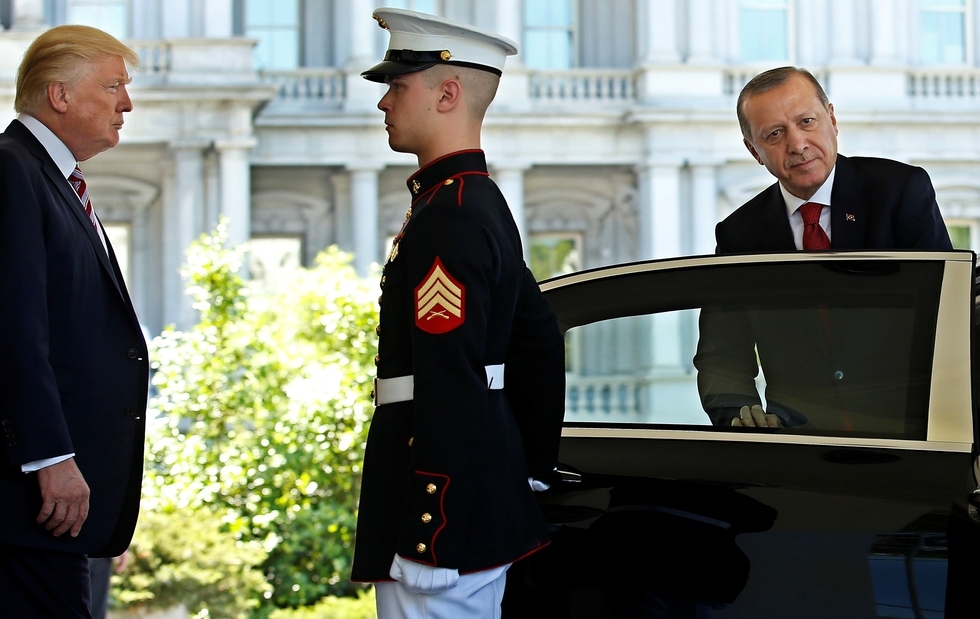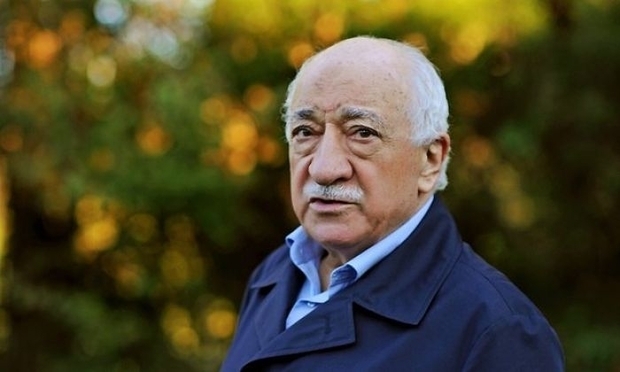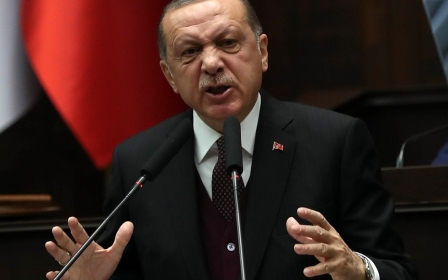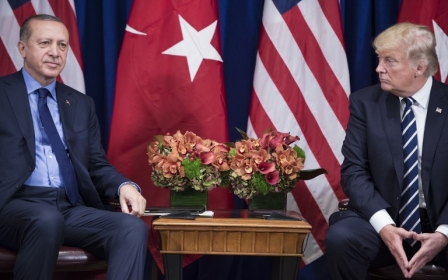From 'strategic partners' to a possible showdown in Syria: Has Erdogan had enough of Trump?

When Donald Trump took over the US presidency from Barack Obama in January last year, the Turkish government was cautious but optimistic about the future of US-Turkey relations.
While Turkish authorities were understandably not happy with the overtly Islamophobic rhetoric Trump used throughout his election campaign, they were still confident that this unfiltered and unorthodox "deal maker" would prove to be a better ally for Turkey than his predecessor.
Significant blows
During Obama's last term in office, the "strategic partnership" between Turkey and the US took a series of significant blows.
First, the US angered Turkey by choosing to ally itself in Syria with the Kurdish People's Protection Units (YPG) - a militia group Turkey views as an extension of the outlawed Kurdistan Workers' Party (PKK), which has waged a bloody campaign against the Turkish state for nearly three decades.
The extreme scenario of a military confrontation between two NATO allies is now within the realm of possibility
Later in March 2016, the US further rattled Ankara by arresting Reza Zarrab, a Turkish-Iranian businessman known for his close links to the Turkish government, on charges that he and others conspired to conduct hundreds of millions of dollars in financial transactions for the Iranian government to evade US sanctions.
In 2013, Zarrab was arrested in Turkey on similar charges, but he was released only a few weeks later with the Turkish government dismissing the entire corruption investigation that led to his arrest as a "coup attempt" by the followers of Fethullah Gulen - a US-based Turkish cleric and businessman who, according to the government, had formed a hostile "parallel state" within Turkey.
So, when US prosecutors arraigned Zarrab in Florida on similar charges three years later, Turkey perceived the court case as proof of the Obama administration's tacit support for an ongoing “Gulenist plot” aiming to topple the Turkish government.
The waning relations between the two NATO allies further deteriorated in the summer of 2016, following the infamous coup attempt against Turkey's president, Recep Tayyip Erdogan.
Turkey announced that it had proof that Gulen was personally responsible for the violent putsch attempt, and asked the Obama administration to immediately extradite the cleric to Turkey. When Obama refused to oblige, citing his government's commitment to the due process of the law, Erdogan proceeded to accuse the outgoing US president of "harbouring terrorists".
In his first phone call with Erdogan in February 2017, Trump praised Turkey's contribution to the fight against the Islamic State (IS), and talked highly of the partnership between the two countries.
He also appointed former lieutenant-general Michael Flynn, who wrote on the day of Trump's 8 November election victory that the US should extradite Gulen, as his national security advisor. (After his resignation, it was revealed that Flynn was on Turkey's payroll during the Trump campaign).
And later in March, much to Turkey's delight, Trump sacked Preet Bharara, the district attorney leading the prosecution in the Zarrab case. Turkish officials have long accused Bharara of being one of the many "Gulenist tools" in the US judiciary.
A short-lived honeymoon
For all shapes and purposes, at least for a couple of months in early 2017, the Turkey-US alliance that had long been neglected by the Obama administration, was coming back to life.
Yet the honeymoon period did not last. In May, ignoring stern warnings by Turkey, the White House announced its decision to supply arms to the YPG and later allowed the group to lead the long-awaited offensive on the IS stronghold of Raqqa. In the meantime, the Zarrab case not only failed to go away, but also became an even bigger headache for the Turkish government.
Against Flynn and Trump-supporting former New York city mayor Rudy Giuliani's reported efforts to solve the problem "diplomatically", Zarrab pleaded guilty to the charges against him, became a witness for the prosecution and gave damning testimony on the Turkish government's complicity in the sanctions evasion scheme.
As Turkey prepares to expand its Syria campaign to the town of Manbij, where at least 2000 US soldiers are believed to be stationed, the Trump administration is reaping the harvest of its past miscalculations
The US once again failed to deliver Gulen to Turkey and furthermore, in October, it announced that it would suspend all non-immigrant visa applications by Turkish citizens in response to the arrest of a member of their embassy staff in Ankara over his alleged links to Gulen.
But none of these developments were enough to make the Turkish government give up on the Trump administration or its decades-long faulty but fruitful strategic partnership with the US. Even when Trump's new national security advisor, General HR McMaster, stated that Turkey and Qatar have become "the main sponsors" of extremist Islamic ideologies targeting the West, the Turkish government kept its calm.
US: A friend and ally?
In a brief statement, the Turkish foreign ministry reiterated that Ankara "continues to see the US as a friend and ally", and expressed its expectation of the same behaviour from the Trump administration. At that point Ankara still had hope that Trump would eventually settle on a "sensible" foreign policy agenda that would not only "put America first", but also allow the strategically indispensable Turkish-American alliance to prosper.
But, of course, there was a limit to Turkey's patience.
On 14 January 2018, the US-led coalition in Syria announced that it was working with the YPG-led Syrian Democratic Forces (SDF) to set up a new 30,000-strong force that would operate along the borders with Turkey and Iraq, as well as within Syria along the Euphrates river.
For Turkey, this was the straw that broke the camel's back. "A country we call an ally is insisting on forming a terror army on our borders," Erdogan said in a speech in Ankara on the day of the announcement. "What can that terror army target but Turkey? Our mission is to strangle it before it's even born."
The Pentagon also published a denial. Yet, neither the Pentagon nor Tillerson was successful in easing Turkey's concerns over the YPG's ever strengthening position right on its doorstep and the Trump administration's ongoing disregard for Turkey’s interests and security concerns.
So, only days after coalition's soon rescinded announcement about the border force, Ankara launched an air and ground campaign into Afrin, a YPG-controlled enclave in northwestern Syria. Codenamed "Olive Branch", the operation's official aim was to cleanse Turkey's borders from "YPG terrorists".
But Turkey also has longer-term objectives.
Past miscalculations
The announcement of US plans to form a border force comprised primarily of YPG fighters was the first palpable insight into the Trump administration's plans for post-IS Syria. This move indicated to Turkey that the US alliance with Syria's Kurds is not a tactical ploy but a more permanent security partnership.
By moving into Afrin, Turkey signalled to the US, and all other actors of the Syrian war, that Syria's future cannot be determined without Turkey's input and approval.
Now, as Turkey prepares to expand its Syria campaign to the town of Manbij, where at least 2000 US soldiers are believed to be stationed, the Trump administration is reaping the harvest of its past miscalculations.
The extreme scenario of a military confrontation between two NATO allies is now within the realm of possibility.
If Trump does not take swift action and somehow convince Ankara that it is willing to accept Turkey's red lines in Syria, limit its partnership with the Kurds and find a way to accommodate the Turkish leadership's concerns about Gulen, we may witness the end of a decades-long strategic partnership.
After all, even the most loyal and patient of allies will not wait around forever.
- Birce Bora is a London-based Turkish journalist and researcher. She holds a PhD in Journalism from City, University of London. Her thesis examined the representation of Turkey in the British print media between 2007-13
The views expressed in this article belong to the author and do not necessarily reflect the editorial policy of Middle East Eye.
Photo: US President Donald Trump watches as Turkey's President Recep Tayyip Erdogan departs at the entrance to the West Wing of the White House in Washington, US 16 May 2017 (Reuters)
New MEE newsletter: Jerusalem Dispatch
Sign up to get the latest insights and analysis on Israel-Palestine, alongside Turkey Unpacked and other MEE newsletters
Middle East Eye delivers independent and unrivalled coverage and analysis of the Middle East, North Africa and beyond. To learn more about republishing this content and the associated fees, please fill out this form. More about MEE can be found here.







